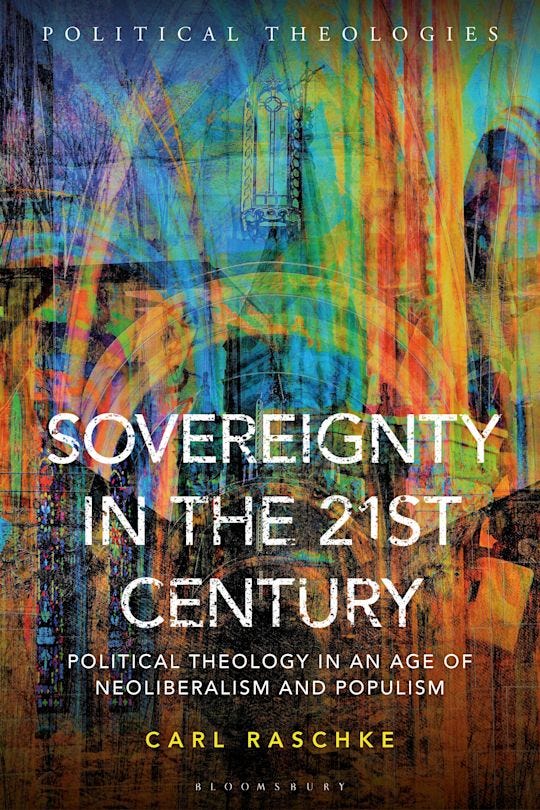We are all "trashing" democracy in this toxic, hyperpartisan election
Only a rediscovery of what popular sovereignty truly means can save us
“The people are the only legitimate fountain of power,” wrote James Madison in Federalist Paper No. 49, “and it is from them that the constitutional charter, under which the several branches of government hold their power, is derived”.
If one follows the polls along with the vile and unprecedented obloquy heaped by Democrats and Republicans on each in the final week before Tuesday’s Presidential election, one needs to ask, however: “who exactly are the ‘people’ we are really talking about these days?
Our overwrought political hyper-partisanship, which now sadly seems a terminal illness, puts the age-old question of what we mean by popular sovereignty at an entirely new level.
If half the populace thinks the other half is “garbage” – or if you’re a Democrat the others are fascist “garbage” – then the metric the citizens of the American republic have been using for over two centuries now to gauge the will of the people - i.e., whoever wins the popular vote and/or the Electoral College – has been rendered useless.
As political theorists will tell you routinely without you even asking, the popular vote and popular sovereignty are not necessarily the same thing, although in principle at least they should closely overlap with each other.
In Madison’s phrasing, it is the power of the people that ultimately counts, and it is only secondarily exercised through voting.
However, Madison along with the other founders insisted on a “representative” democracy rather than a direct one. That is what we currently have in the United States, and it is inextricably bound up with the other principle for which Madison is famous for promulgating – the “balance of power” between separate branches of government.
In short, what the “people” want at any given historical moment and what they get do not automatically coincide. The “people” per se do not make decisions. They elect representatives, who make laws, in accordance with which routine decisions by administrators, executives, or jurists are devised and essayed.
If these decisions, or policies informing the decisions, depart from the law, they are overturned by those who interpret the law. That is the distinction between the legislature and the judiciary, one which has dominated most of the world’s legal system for centuries.
Furthermore, even the lawmakers, or legislators, do not have the final say. Their legislation must conform to certain foundational legal principles, often termed rights, which are enshrined in a nation’s constitution. According to some modern theorists, they are also regarded as implicit in what they designate as the consensus gentium - the prevailing view of humankind.
Madison had a unique take, as it turns out, on what “power to the people” – a slogan shouted ad nauseum throughout the late Sixties and early Seventies in the anti-Vietnam War protests – actually signifies.
According to constitutional lawyer James Kloppenberg, it meant neither any fleeting or episodic gesture to the “will of the people” or even the general consensus over time. It referred primarily to the implementation of the common good.
“Knowledge of that common good,” writes Kloppeberg, emerges, “as it did for Madison and the other delegates who convened in Philadelphia, only through the process of deliberation, compromise, and creative rethinking”.
That is what defines “democracy”, or technically speaking, popular sovereignty.
Popular sovereignty, which derives not from the people per se but the “power” of the people, rests on the willingness of those within an electorate who cast their ballots to engage others to whom they disagree, or even vehemently oppose.
It is a blatant contradiction in terms, as is the case with so many on the left and on the rights these days, to profess that they are the one half of the “people” struggling to defend democracy against the other half.
I make this point forcefully in my latest book entitled Sovereignty in the Twentieth Century: Political Theology in an Age of Neoliberalism and Populism. The demonization of the other half of the electorate is a symptom of the abysmal breakdown of popular sovereignty.
The book begins by tracing the development of the idea of “sovereignty” – a modern concept – from its beginnings amid the Wars of Religion in the sixteenth century, an epoch similar in many respects to our own
Jean Bodin, the celebrated French jurist of that period who largely coined the word, made a point of emphasizing that sovereignty cannot be “divided”, because it rests of certain quasi-religious - or “metapolitical” – precepts. A divided sovereignty is not sovereignty at all, but a slow-motion chaos.
In the book I make the slightly different, but critical, point that the death of popular sovereignty has been hastened through the capture of governing institutions by globalist elites – so-called “progressive neoliberals” who are “democrats” in name only. I offer a detailed analysis of how this capture has evolved over time in an earlier work.
The Greek word demos to which the word “democracy” can be etymologically traced implies that part of the population which has been historically excluded or left out.
Rule by elites – especially educated or wealthier elites, even if they claim to have in mind the best interests of those who are excluded – can never be considered “democracy”. It is “aristocracy”, or rule by “those who are better”, i.e., the aristoi.
That presumption that half the people is “garbage” is a classic attitude of a decadent aristocracy that has lost its raison d’etre. It is the notorious and toxic hauteur of a regime on the brink of collapse.
As I argue in chapter 7 of my new book, popular sovereignty in the sense that Madison intended requires a respect of all members of the body politic for each other. It is based on the principle of what the German philosopher G.W.F. Hegel termed “mutual recognition”, i.e., the principled openness each of us have in a genuine democracy toward letting the “other” – despite their different moral or cultural values as well as economic status – be respected for whom they are, or what they believe and hold dear.
I write in chapter 7: “the problem of popular sovereignty ultimately comes down to a question how symbols of collective solidarity can be nurtured and rendered plausible, enabling ordinary people to decode their everyday experience and find a greater and enduring sense of commonality”.
We can only find commonality – and promote popular sovereignty aka the common good – through ruthless habits of respect for and recognition of each other, which amounts to setting aside our carefully cultivated grievances and moral outrage when we go to cast our ballot.
That also entails accepting the eventual outcome of the election along with total transparency concerning how the voting was carried out.
All things considered, that is how we truly “save” democracy.
There is absolutely no other way.



